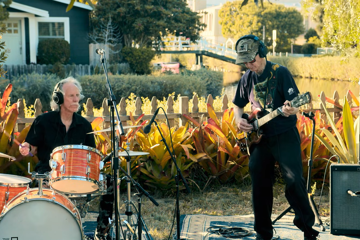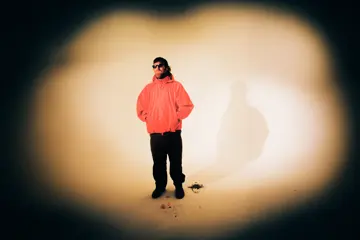In an appropriately bleak and bureaucratic holding cell – designed well by Lorel Elstein – and concealing the tricks she holds in hand 'til later in the show – we find Katurian Katurian (Oliver Wenn), a foal of a man whose meekness hardly hints at his dark past, with reams worth of short stories.
At the end The Pillowman seems designed by the bleak parables that pepper it. In place of a moral or a reader's revolution though is the constant reminder that humanity is sick. We see it in Jeremy Waters' hunched, lanky and aggressive interrogator Ariel; in Peter McAllum's clinically unmoved Detective Tupolski; and in the torrent of abuse – received and distributed – that floods the family history of the Katurians. But in these hyperbolic portrayals the black comedy of playwright Martin McDonagh (who penned and directed In Bruges) is what shines through. It is the layer of narrative beneath or parallel to that – each of these men's stories as opposed to lives – and Katurian's constant need to narrativise that a darker resignation to our most disagreeable impulses arises.
While it doesn't always reach the heightened, hyper-real sordidness required, director Luke Rogers' production serves to set a stage upon the stage that will be occupied at numerous times by the most horrible ghost stories you will hear, like Brothers Grimm tales set and told in a totalitarian police state.
Until Saturday 13 April at New Theatre.















